


















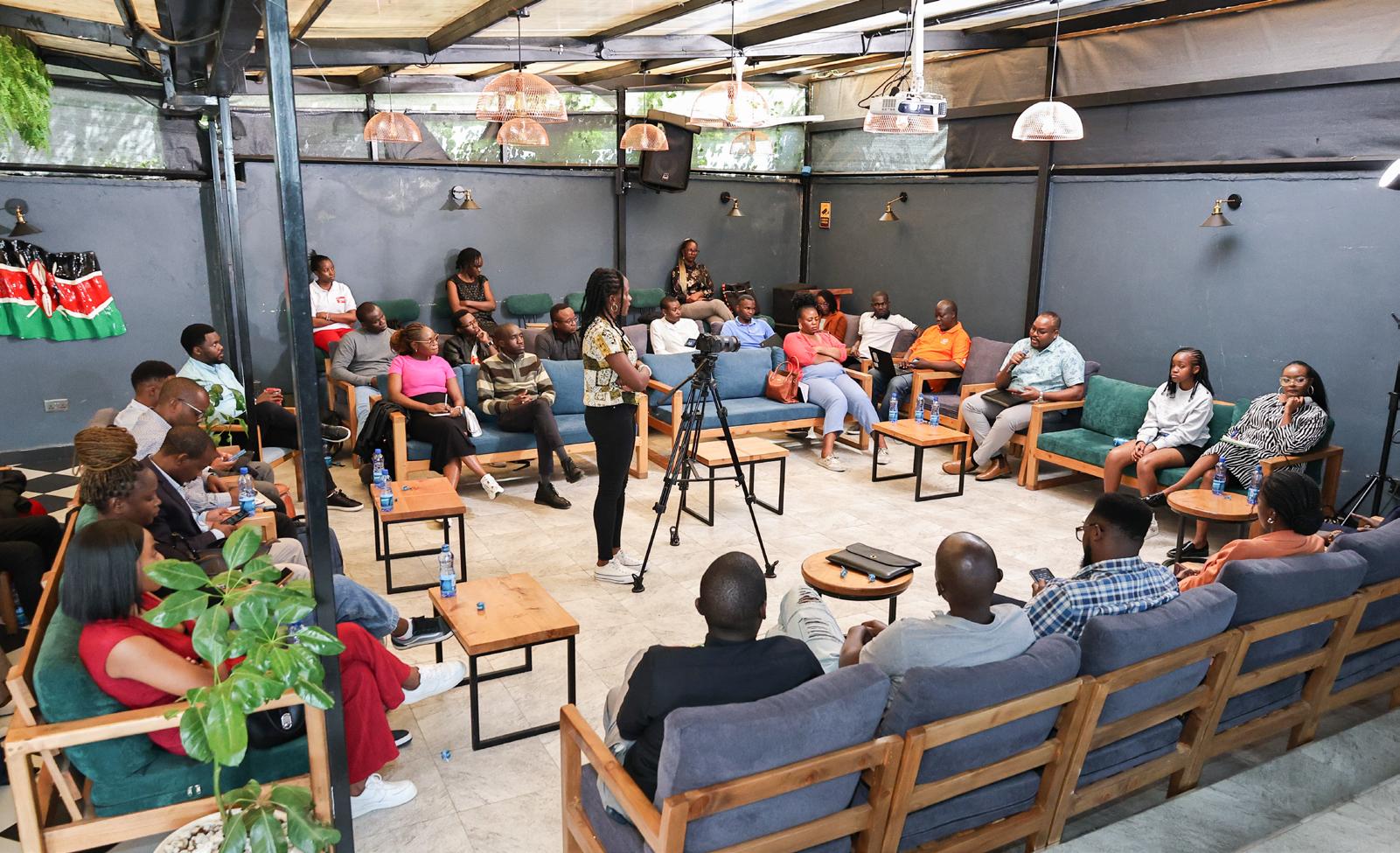


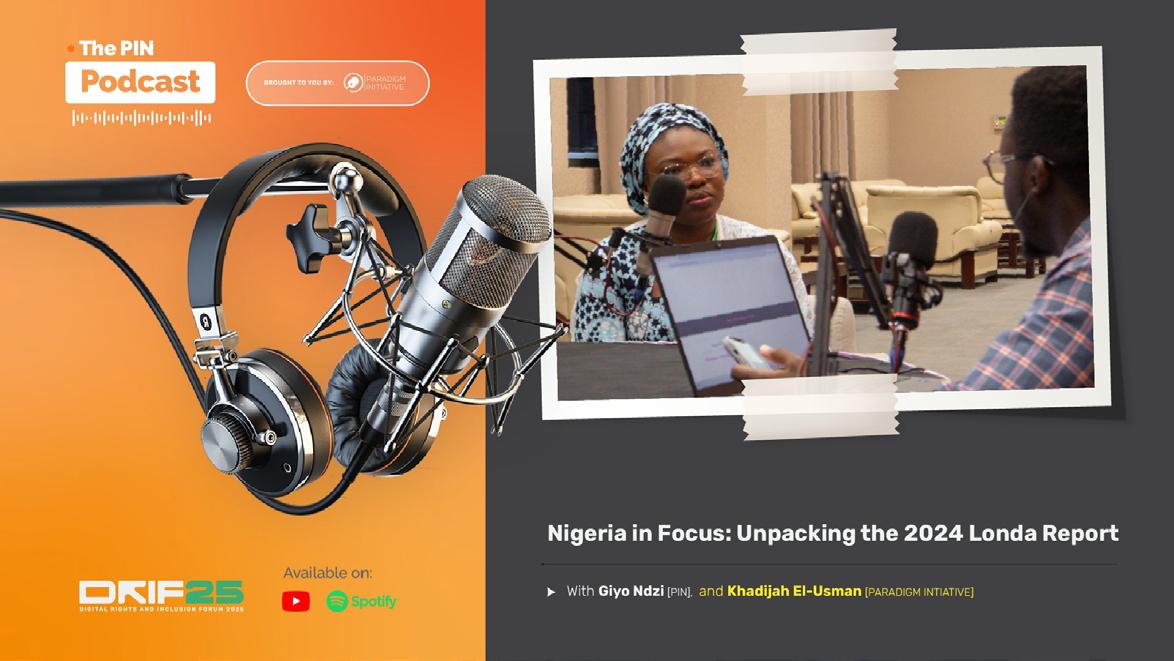















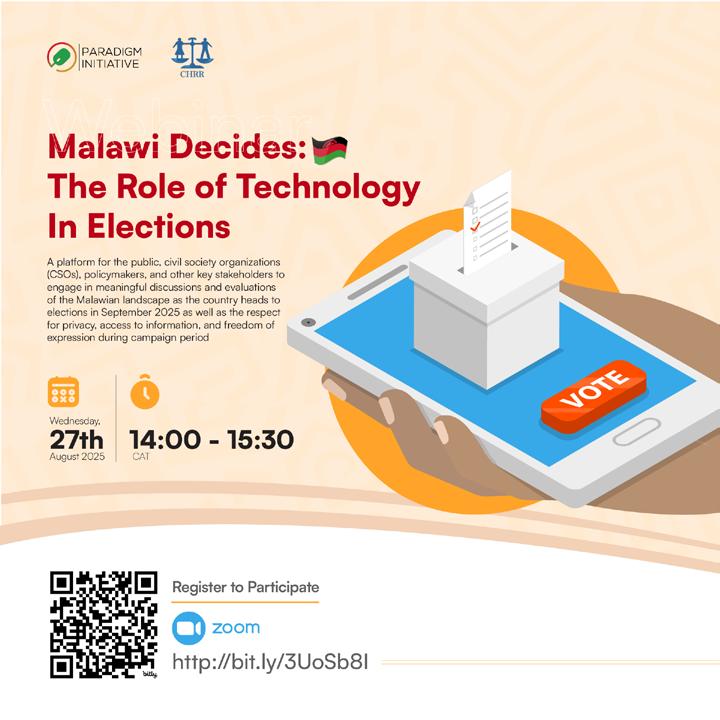



























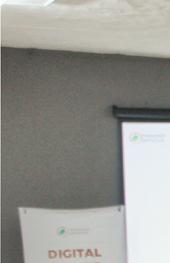
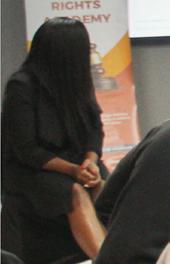






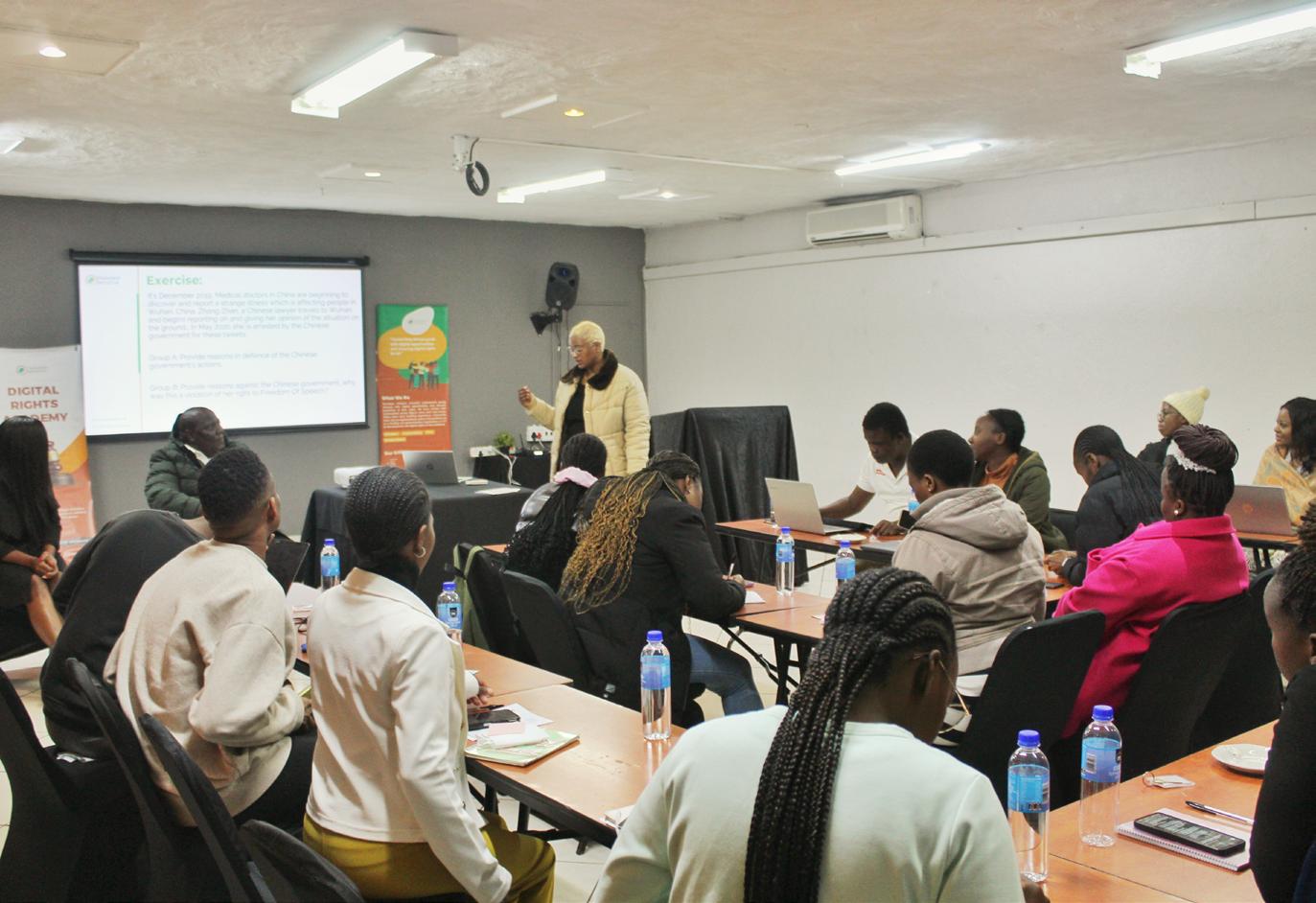
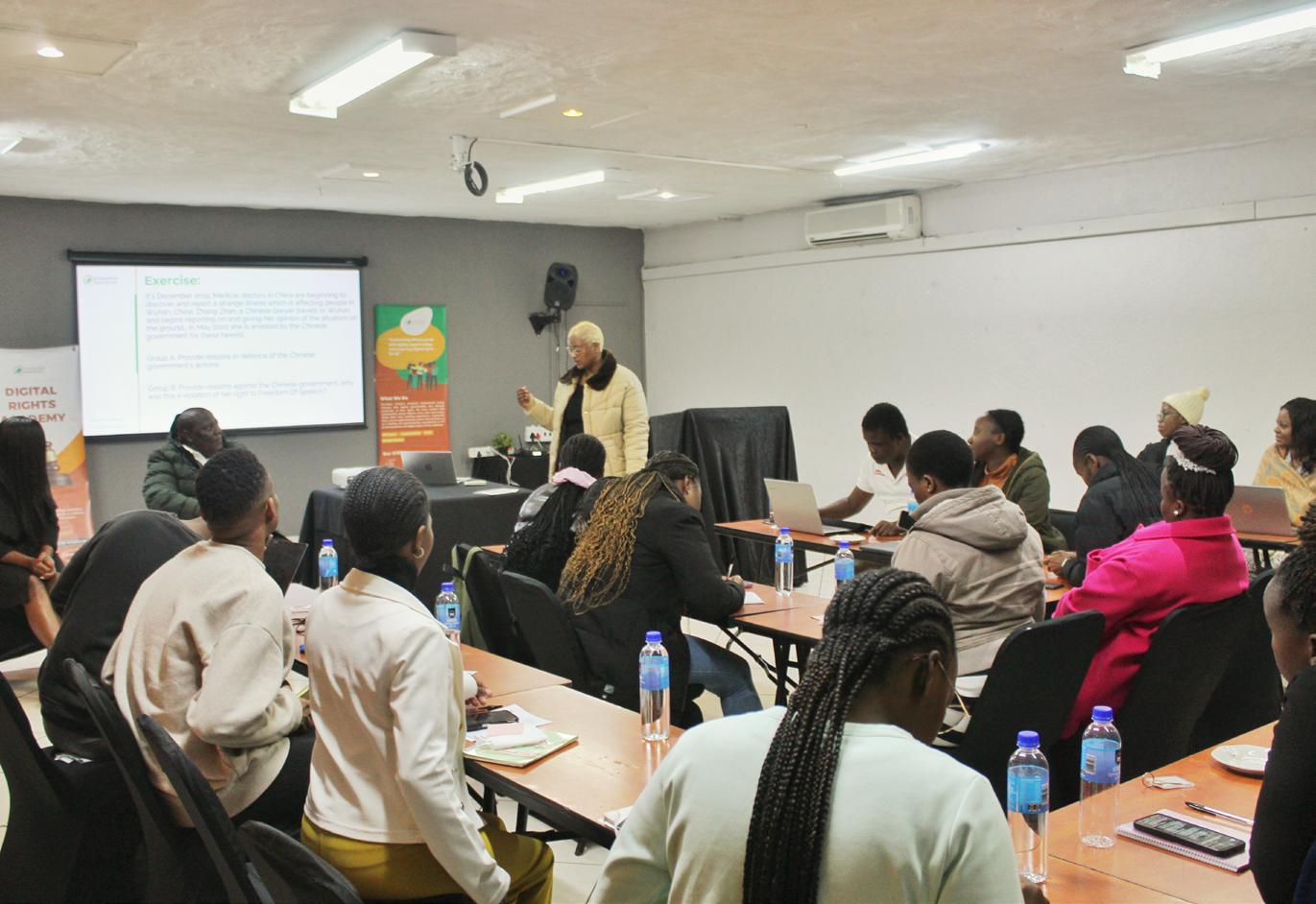


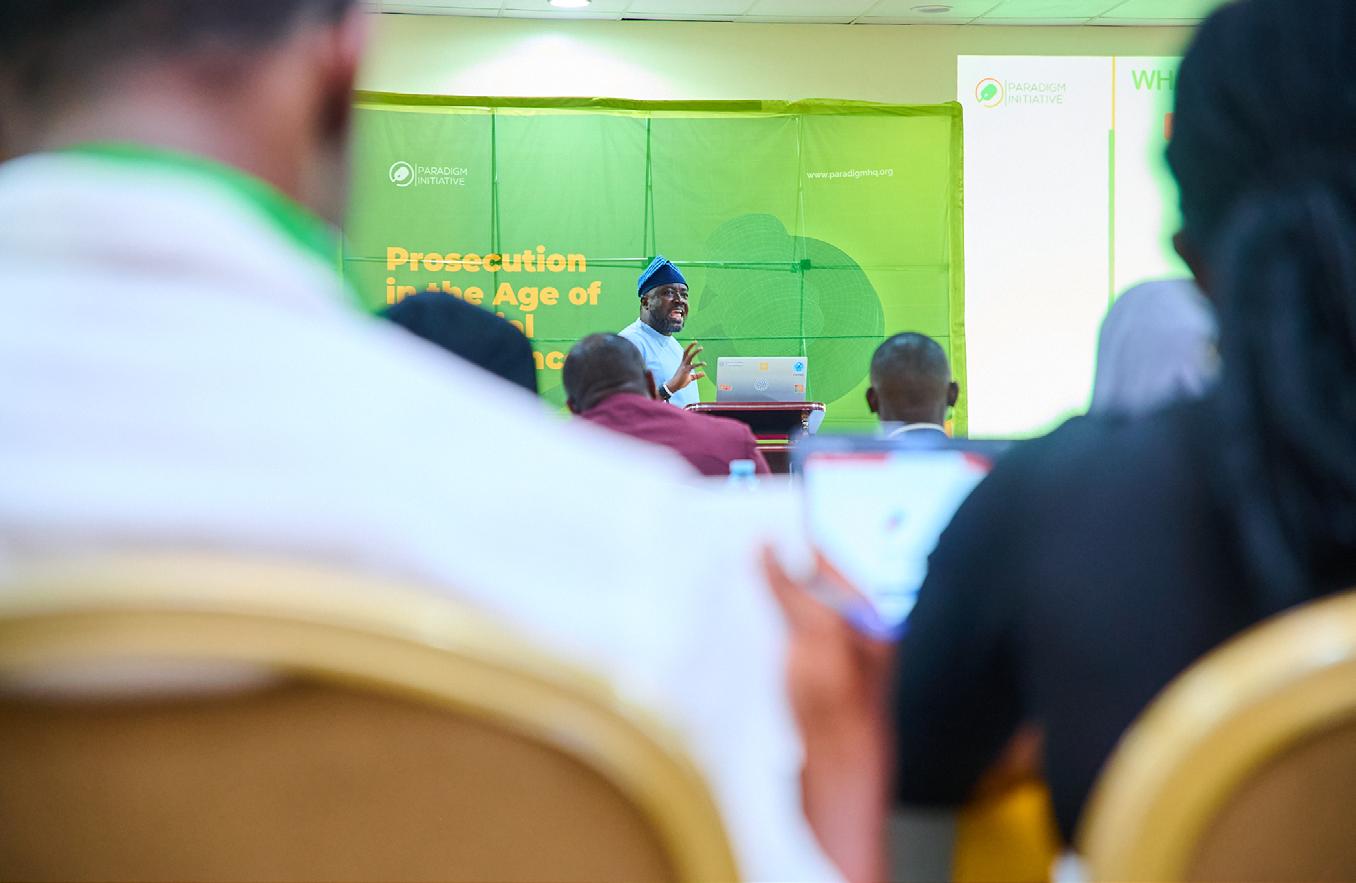








































































































Dear Reader,
This month at Paradigm Initiative, we have been on the move, expanding opportunities, amplifying voices, and standing firm for digital rights across Africa.
From launching our flagship LIFE Legacy programme in Uganda to hosting thought-provoking conversations at the AfroCities Café in Nairobi, we continue to create spaces where young people, civil society, and policymakers can shape Africa’s digital future. Our leadership voice echoed at the United Nations in New York, while on the ground, our academies and forums trained journalists, legal experts, and youth advocates to defend online freedoms. It was also a month to celebrate humanitarians, whose courage and commitment inspire our work to bridge digital divides and defend freedoms.
Dive into this edition for inspiring stories, key updates, and opportunities to get involved.
Key Highlights
• AfroCities Café returns to Nairobi
• PIN joins the Internet Governance Forum Leadership Panel in New York
• The PIN Podcast: Discussing digital rights and inclusion advocacy in Nigeria
• Impact stories: From the first touch of a computer to changing lives
• Over 6 billion people hit by internet shutdowns since 2015

Empowering civil society at the Eswatini Digital Rights Academy
In a world where digital spaces shape our stories and voices, protecting digital rights isn’t just an option; it is a necessity. This month, representatives from youth-led civil-society organisations in Eswatini’s digital and human rights sector took part in Paradigm Initiative’s Digital Rights Academy, diving deep into the realities of digital security and freedom. Over two days, they sharpened their skills to navigate the complex online landscape with confidence and courage. Held in partnership with the Swaziland Youth Empowerment Organisation, the training adds to safeguarding the digital future of Eswatini and beyond, as communities thrive when civil society voices are protected.
This month, the Afrocities Cafe returned to Nairobi, Kenya, one year after its debut in the East African country. On August 6, PIN hosted the latest edition of the Café under the timely theme: “Digital Crossroads: From Shutdowns to Surveillance – Defending Online Freedom in Kenya.” The Nairobi gathering brought together legal minds, journalists, tech experts, policymakers, and civil society to reflect on
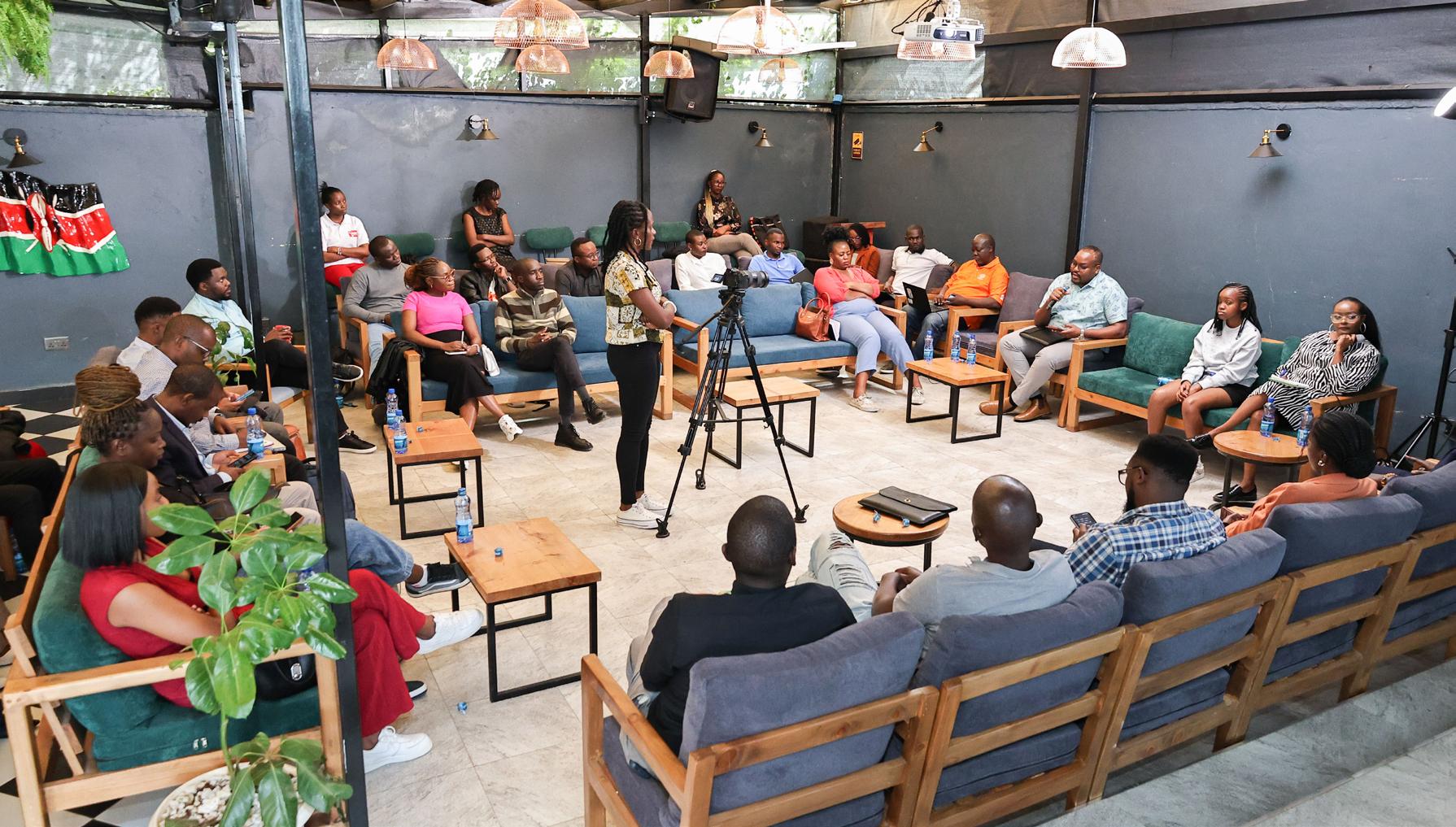
Kenya’s digital rights landscape. The focus was on the landmark internet shutdown case filed by PIN, BAKE & ICJ-Kenya, the impact of the Cybercrimes Act, and the future of digital governance in an AI-driven era.

On August 14th and 15th, we hosted a Digital Rights Academy in the coastal city of Mombasa in Kenya. The academy was hosted in collaboration with the Mombasa Press Club, bringing together 20 journalists from the coastal region- Mombasa, Kilifi and Kwale. The training is coming at a time when journalists in Kenya continue to face mounting challenges in reporting on digital rights and inclusion, largely due to limited technical expertise. The event was attended by Judith Ogutu, PIN’s Communications Manager, Miriam Beatrice Wanjiru, PIN’s Programmes Officer East Africa, Omar Abdalah, Chairperson of Mombasa Press Club, and Ben Serem, Media Analyst, Media Council of Kenya (MCK). The journalists were trained on digital security aspects and presented with highlights of the state of digital
rights and inclusion on the continent and in Kenya, as well as the organisation’s toolkitsRipoti and Ayeta, among other aspects.

PIN is still seeking vendors to support the successful organisation of the 2026 Digital Rights and Inclusion Forum, (DRIF26). If you know someone providing the following services in Cote D’Ivoire: photography, videography, language and sign language interpretation, internet provider, flight ticketing, rapporteuring, and event management, please urge them to sign up before August 31, 2025.
On August 20 and 21, Paradigm Initiative led a Digital Rights Academy in Abuja, Nigeria, with the theme: “Prosecution in the Age of Artificial Intelligence,” under the Stemming the Tide of Abuse in Nigeria’s Digital Space (STANDS)
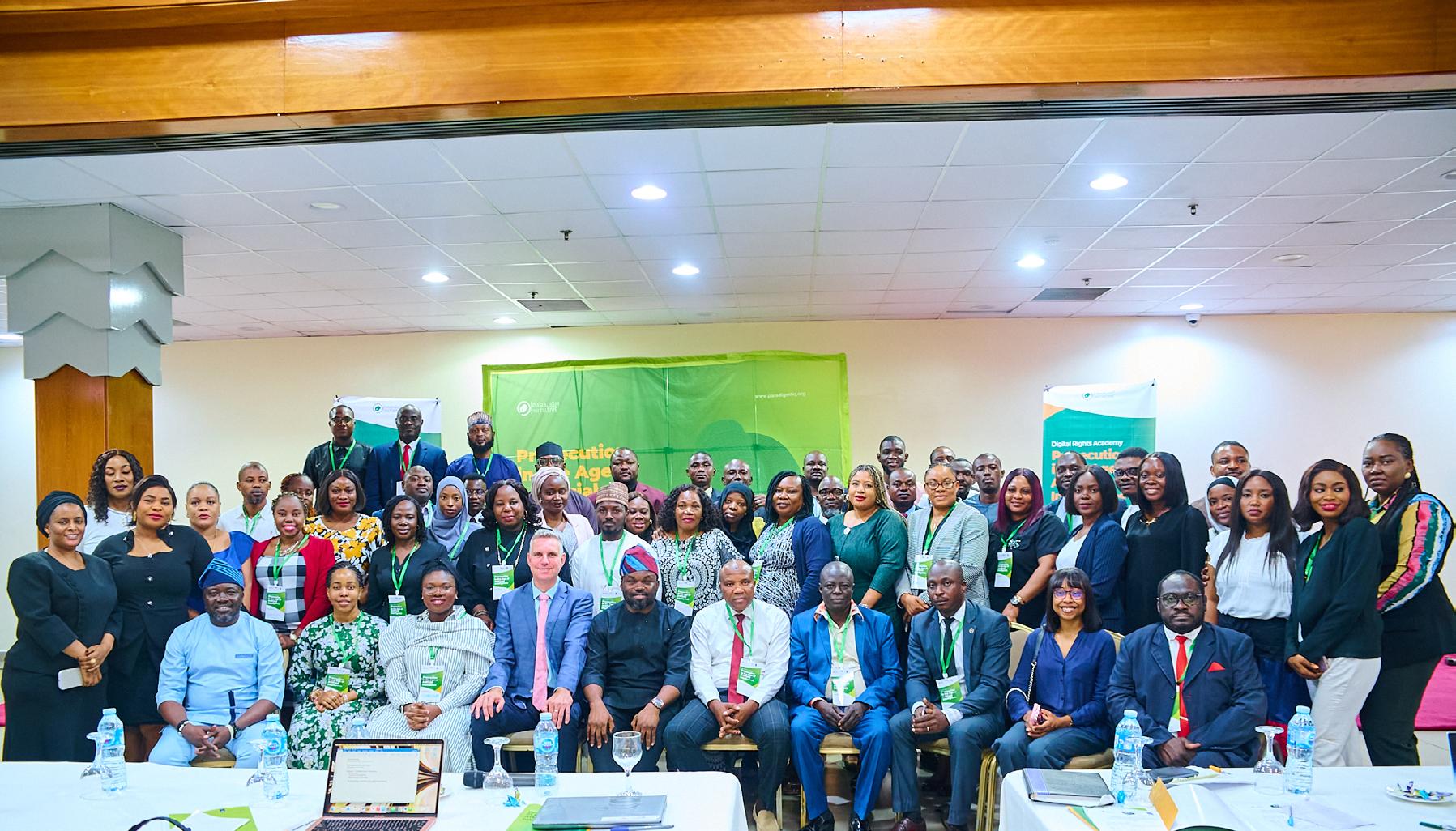
Project. For two days, prosecutors and legal officers from Nigeria’s Federal Ministry of Justice and beyond engaged in expertled sessions, case studies, and interactive discussions meant to strengthen their prosecutorial capacity in handling cases that involve digital rights violations and the use or misuse of Artificial Intelligence technologies. See details here.
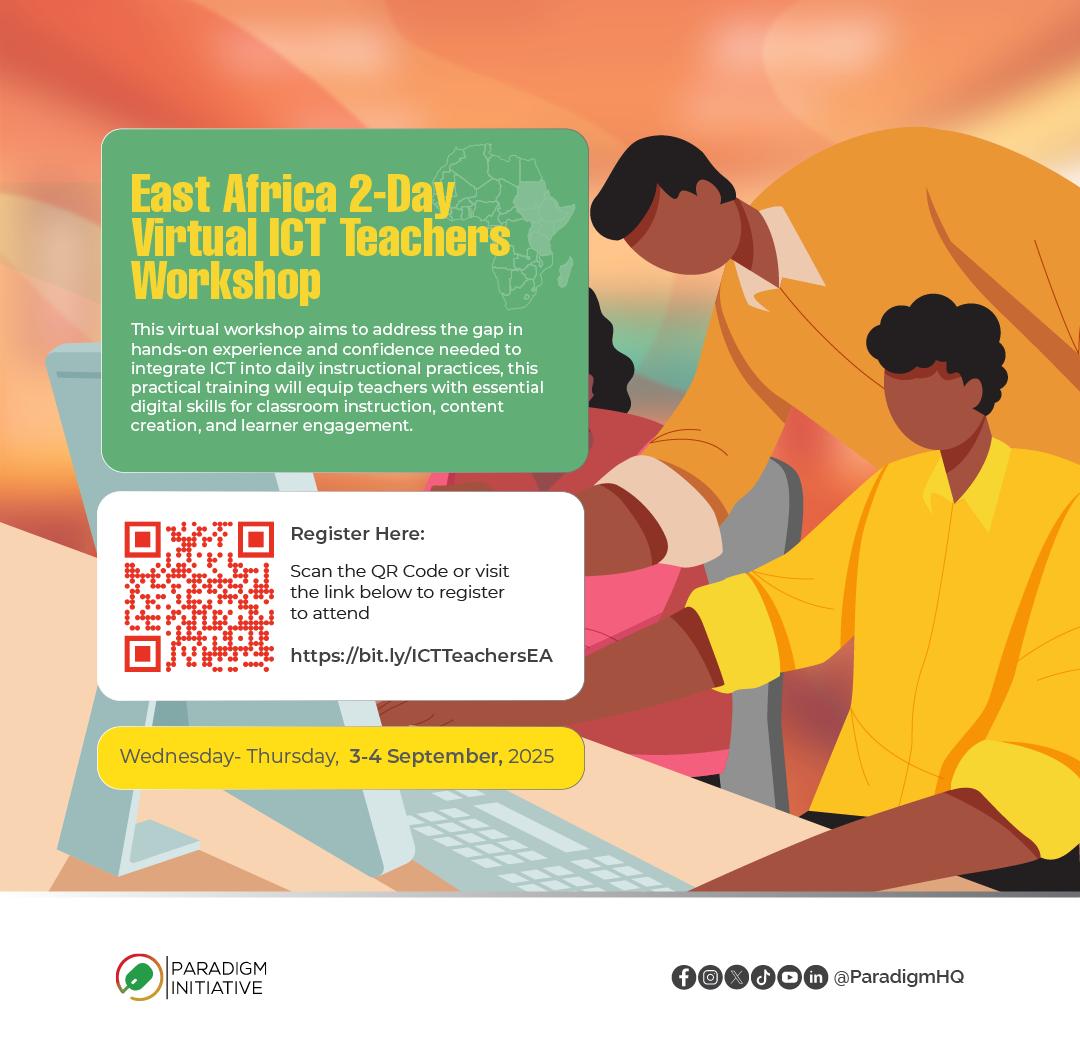
The first of three 2-day ICT Teachers’ workshops by Paradigm Initiative, themed ‘Enhancing digital teaching competencies,’ is slated for September 3 and 4 on zoom. Targeting the East African region, the workshop is designed
to equip educators with the practical tools they need for the 21st-century classroom. Share with your networks in East Africa and encourage them to register. Other sessions for the West and Francophone Africa regions will follow in the weeks ahead.
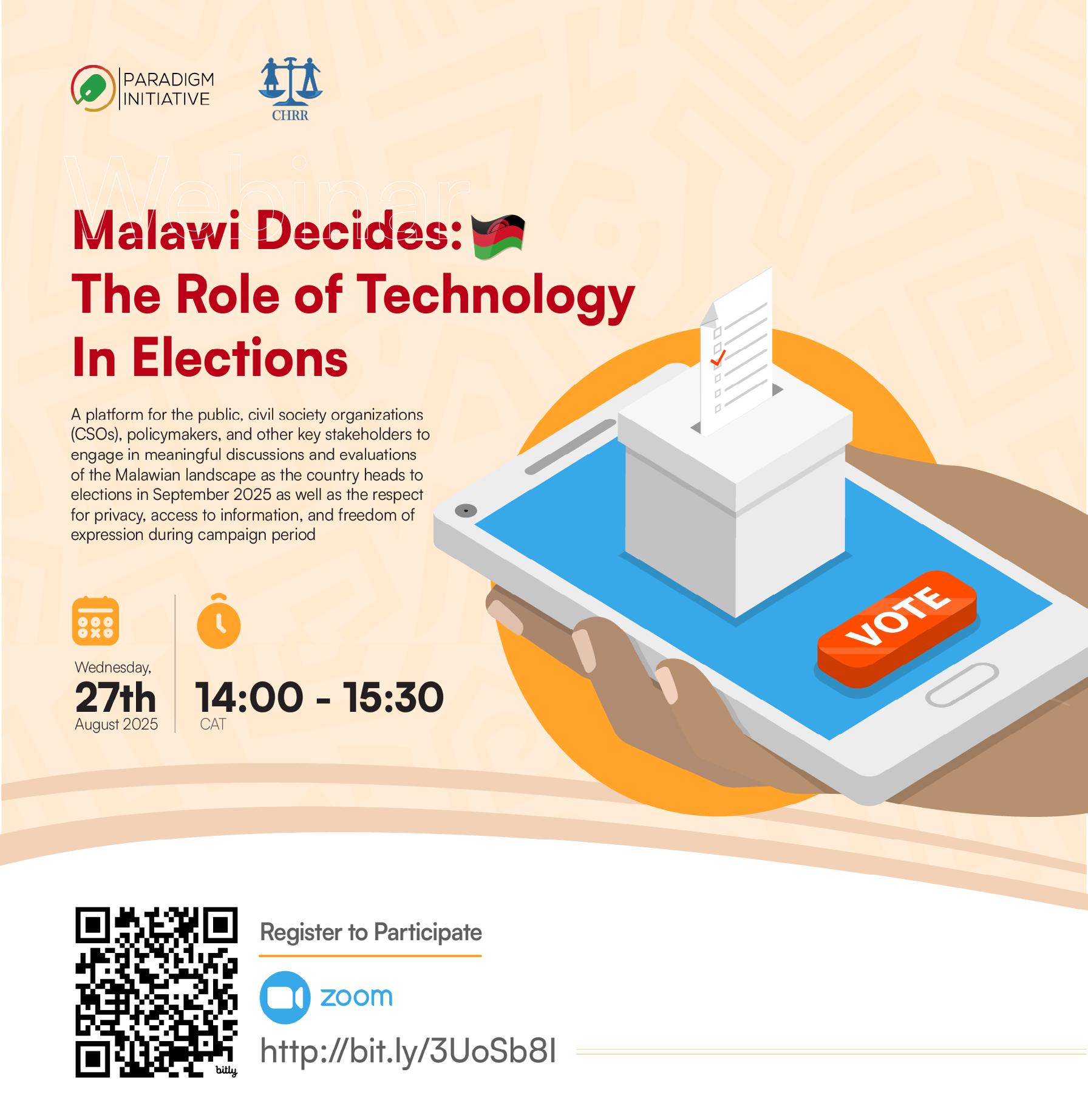
On August 27, Paradigm Initiative hosted a webinar to explore the intersection between democracy and technology in Malawi ahead of its upcoming elections. The webinar brought together citizens, Civil Society Organisations (CSOs), policymakers, and key stakeholders to explore how technology is shaping democracy, protecting privacy, enabling access to information, and defending freedom of expression in Malawi’s elections.
Between August 25 and 27, our Executive Director, ‘Gbenga Sesan, joined other members of the Internet Governance Forum (IGF) Leadership Panel at the United Nations headquarters in New York. It was an opportunity for them to review the major activities, how the panel has performed against its mandated tasks for the past year, and areas of success and shortcomings. They also took out time to assess the Leadership Panel’s work, including barriers faced, how the IGF has progressed over the course of their mandate and recommendations for the future.
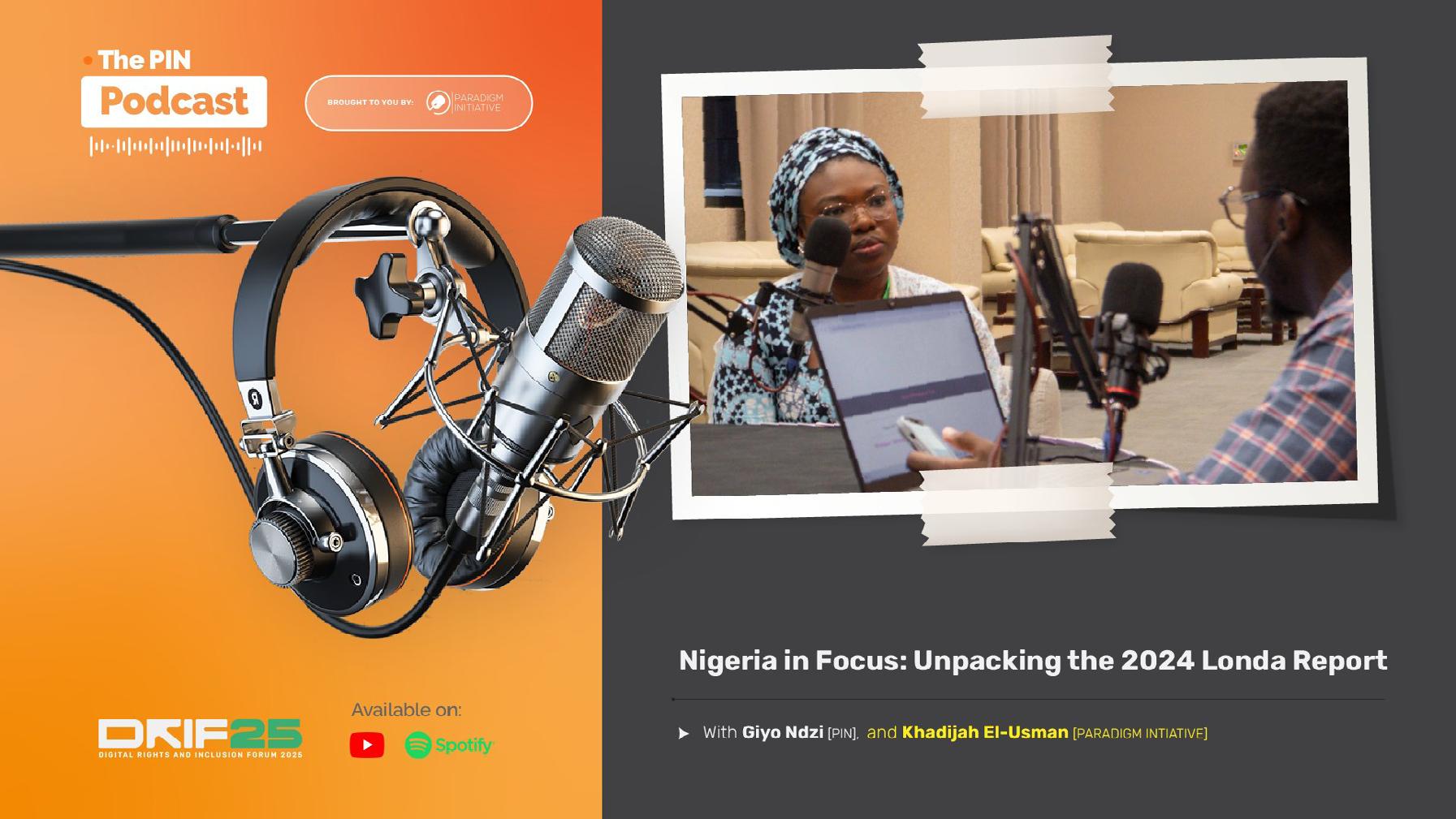
The latest edition of the Paradigm Initiative podcast, recorded at DRIF25, is now available. In this edition, Senior Officer for Anglophone West Africa, Khadijah El-Usman, unpacks the 2024 Londa Report for Nigeria, spotlighting key challenges, policy gaps, and the fight to protect digital freedoms. Listen, share with your networks and let us know what you think.
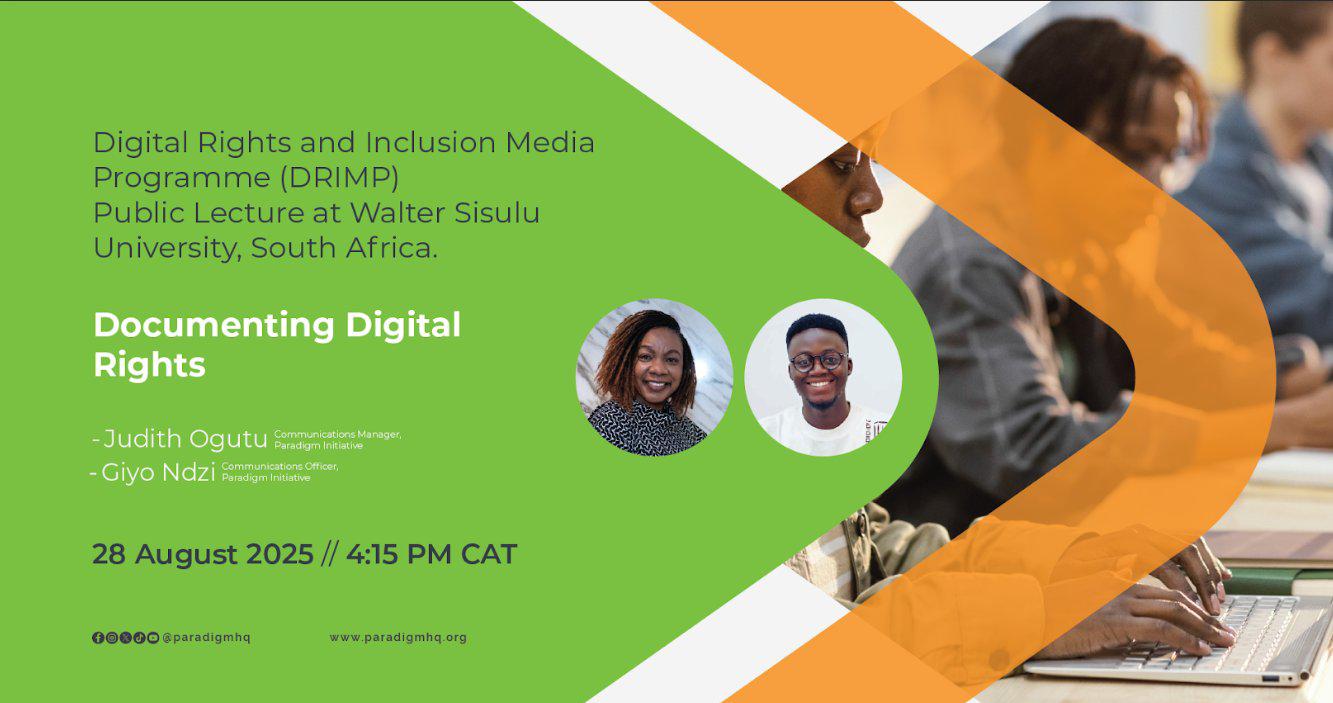
DRIMP: Data Protection, documenting and reporting digital rights
As part of Paradigm Initiative’s Digital Rights and Inclusion Media Programme (DRIMP) at Walter Sisulu University, Bridgette Ndlovu, Partnerships and Engagements Officer, on August 14, 2025, facilitated a session, ‘Data Protection and the Right to Privacy.’ The session explored the state of privacy rights and data protection in the Global South, examining communications surveillance, international data protection frameworks, and the adoption of privacy laws. In another session on August 28, Communications Manager, Judith Ogutu and Communications Officer Giyo Ndzi also led another session on documenting and reporting digital rights.
Clicks that hurt: Survivors’ approach to understanding Technology-Facilitated GenderBased Violence
Technology-Facilitated Gender-Based Violence (TFGBV) is not just an online problem. Its damage is real, and its negative consequences are long-lasting. It could range
from threats in your inbox, non-consensual sharing of intimate images, location tracking, impersonation and public shaming on social media. Paradigm Initiative has launched a research campaign to collect TFGBV survivor stories across six countries (Cameroon, Nigeria, Kenya, Senegal, Zambia, and Zimbabwe), as we believe data should reflect lived truths. Have you been a victim before or do you know any? Take the survey and share with them too.
Media Corner
• Over 6 Billion people hit by internet shutdowns since 2015: More than 6.1 billion people worldwide have been affected by internet shutdowns since 2015, according to new data from the Internet Shutdown Tracker, which draws on findings from watchdog group NetBlocks, as well as NGO and media reports. The report names 84 countries that have, at least once in the past decade, restricted citizens’ access to the internet or social media as a political tool, reports Business Daily Nigeria’s Royal Ibeh. The new data comes amid fresh warnings from African digital rights advocates in Africa about rising threats to online freedoms during critical democratic periods. Read the full article here
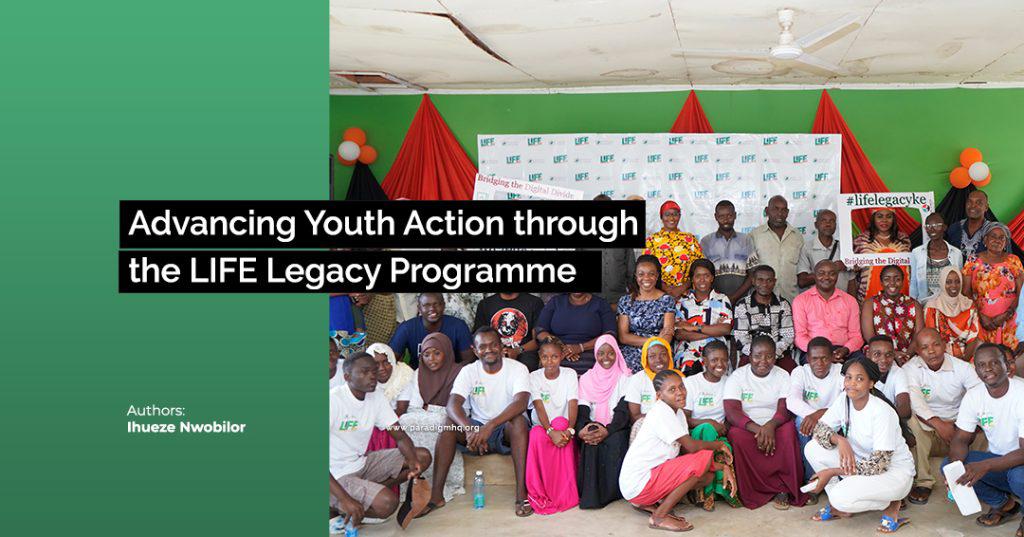
In 2023, Grace from Kibera, Kenya, had never touched a computer. Today, she’s a full-stack software developer, and she teaches girls and women digital skills, confidence, and courage to succeed. She’s one of 150,000+ youth empowered by our LIFE (Life Skills, ICTs, Financial Literacy, and Entrepreneurship) Legacy programme, turning local action into lasting impact for the Strategic Development Goals. In a new article, our Senior Programmes Officer, Ihueze Nwobilor, spotlights Grace, Wisdom, Alphonce, and other inspiring changemakers.
The 2024 Digital Rights and Inclusion in Africa Report—Londa is available. It contains a new Score Index ranking countries on the continent according to their compliance with key human rights elements. South Africa tops the list of countries that are compliant with key human rights elements, followed by Ghana, Zambia, Namibia, and Rwanda,
respectively. Other countries on the top 10 list are Nigeria, Senegal, Malawi, Tunisia, and Kenya. The Index developed by PIN evaluates the compliance of the countries with the key human rights elements described in the African Commission on Human and Peoples’ Rights Declaration of Principles on Freedom of Expression and Access to Information. Download the comprehensive report
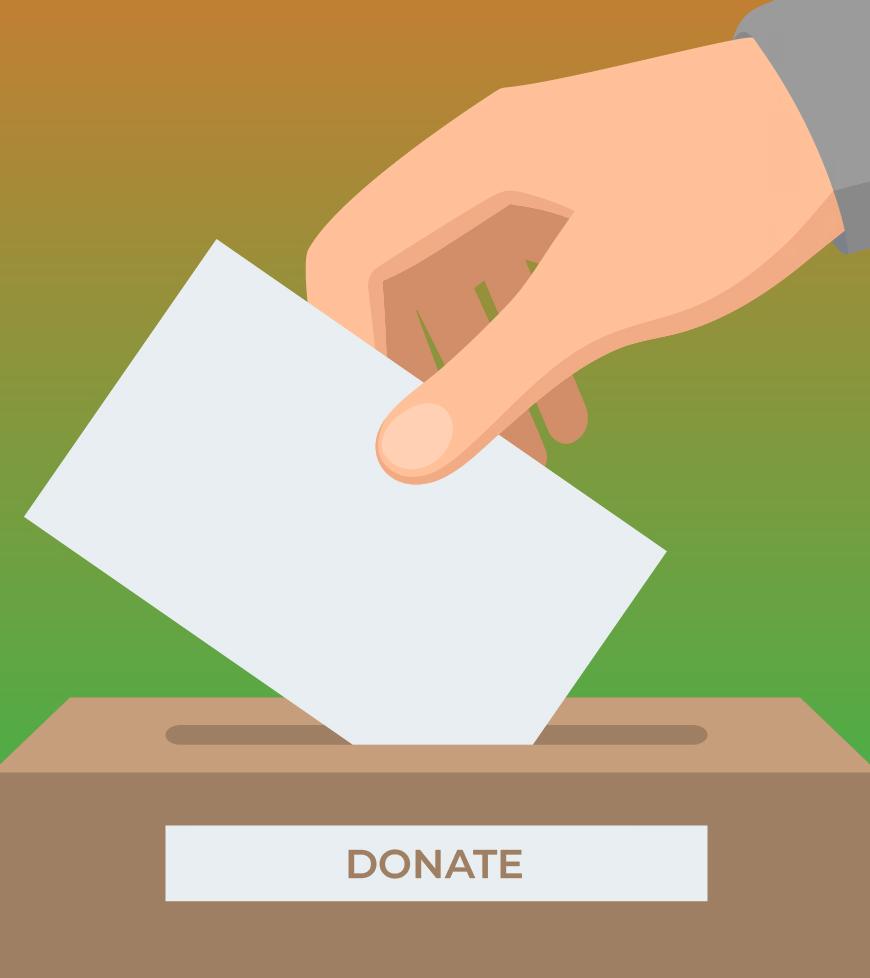
Support the drive for a more inclusive, safe digital space
Paradigm Initiative has been a driving force for positive change in African communities since 2007. With our roots in Nigeria and operations across Cameroon, Kenya, Nigeria, Senegal, Zambia, Zimbabwe and beyond, we have impacted the livelihoods of more than 150,000 under-served young Africans through digital opportunities and protection of their rights online. Our vision towards a rightsrespecting world is resolute, and so is our focus on influencing policies in digital rights and inclusion while advocating for a free and affordable Internet. Visit our website to learn how you can support us.